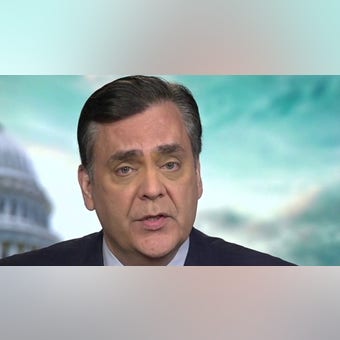Jonathan Turley: Biden's latest gaffe may come back to 'haunt' him
Fox News contributor Jonathan Turley weighs in after President Biden falsely claimed his student loan relief plan had been 'passed.'
President Joe Biden recently boasted that the Supreme Court and a lower court had declared that they are "on Biden's side" on tuition forgiveness. That was off-base, but Biden made an even more bizarre comment that he "passed [the loan forgiveness] by a vote or two" in Congress.
That boast is particularly embarrassing because the administration is in court claiming that he did not need to get congressional approval for the plan. It is likely to be raised by challengers in the next stage of litigation. It also may reflect a moment of actual clarity in his subconscious mind, a faint recognition of the constitutional principles that he once defended as a United States senator.
There are significant constitutional questions raised by Biden's half trillion dollar loan giveaway -- an acknowledgment made by one of the courts ruling against challengers on standing grounds. The problem is finding someone with standing to allow courts to reach the merits of this unilateral executive action.
On the merits, the Justice Department is insisting that no vote was needed by Congress for Biden to simply waive hundreds of billions of dollars of debt owed to the American people. Many of us contested that claim.
Yet, in a sit-down interview with NowThis ‘Make Your Mark’, Biden seemed to channel the objection of the challengers and declared "It’s passed. I got it passed by a vote or two."
Biden's latest gaffe is likely to be referenced in the ongoing litigation to reaffirm the assumption (including by Biden himself) that Congress would need to sign off on such a giveaway. After all, the Framers gave Congress the power of the purse as a check on such executive authority.
The Biden administration is relying on a dubious argument that Congress allowed for such a massive loan forgiveness in passing the Higher Education Relief Opportunities for Students (HEROES) Act of 2003. As the acronym indicates, this short bill was designed for military personnel who often found themselves in arrears while serving abroad. It allows the Education Secretary to grant student loan relief during a war, military operation, or national emergency. But nothing in the barely five-page act supports a sweeping and unprecedented waiver of billions of dollars in loans owed to the government.
The White House staff will now bring out the mop-and-bucket crew on the latest presidential spill, but it may be difficult to spin this latest gaffe. HEROES was passed in 2003 in the House by a vote of 421-1. That right's the was only one vote against the bill. (The only nay vote was from Democrat George Miller of California). It passed the Senate by "unanimous consent." There was no roll call vote according to the congressional record. At the time, Biden was the senior senator from Delaware. So it appears rather than passing the original Heroes Act by "one or two votes," there was only one vote in either house against it.
As for his half a trillion giveaway of loan debts, there was no one or two-vote margin because he never submitted it to Congress. Biden is, however, right about one thing: He should have.
CLICK HERE TO GET THE OPINION NEWSLETTER
What is fascinating about Biden's gaffe is that he was subconsciously or unwittingly channeling constitutional norms. This is precisely the type of major measure that the Framers assumed would be subject to debate and approval in Congress. James Madison observed that our system of separation of powers strongly separates the powers of "the sword from the purse." Madison also noted in Federalist 58 that the power of the purse is the "most complete and effectual weapon with which any constitution can arm" a governmental branch.
CLICK HERE TO GET THE FOX NEWS APP
Thus, Biden articulated the correct principle in claiming to have passed his loan forgiveness program even by the slimmest majority. The fact that did not actually occur only highlights the fact that it should have occurred. This may be why famed psychoanalyst Carl Jung once remarked, "The unconscious mind of man sees correctly even when conscious reason is blind and impotent."












































